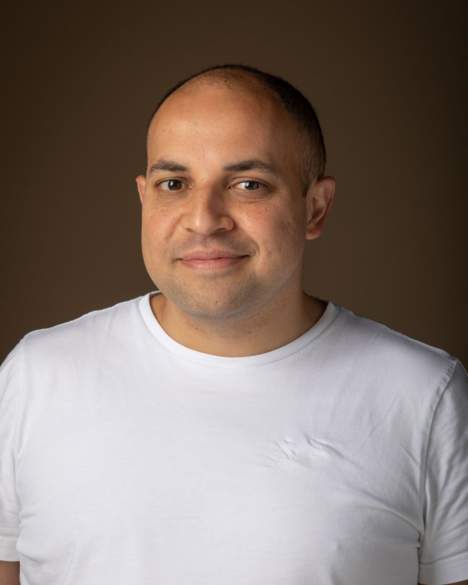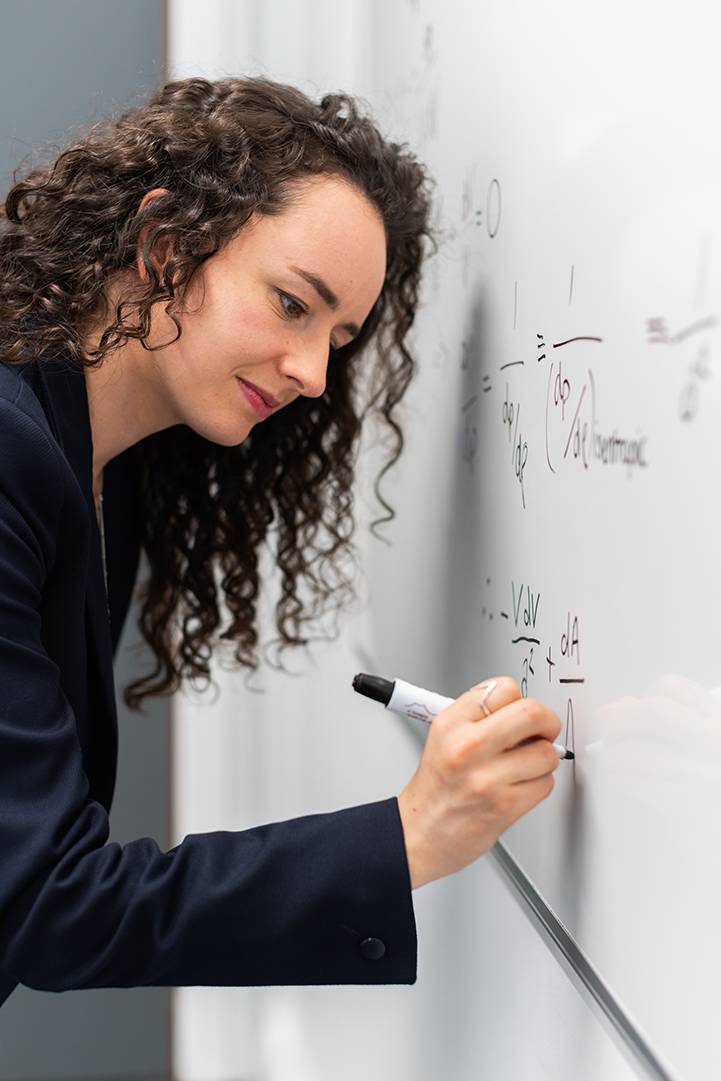Jayme Blaschke | February 9, 2022

Nestor Guillen, an assistant professor in the Department of Mathematics at Texas State University, has been awarded the National Science Foundation's (NSF) Faculty Early Career Development Program (CAREER) grant.
The five-year, $400,000 award, which will support his research, "CAREER: Integro-differential and transport problems in partial differential equations," is funded by the NSF’s Division of Mathematical Sciences (DMS). The DMS supports research in mathematics and statistics, training through research involvement of the next generation of mathematical scientists, conferences and workshops and a portfolio of national mathematical sciences research institutes.
The CAREER program offers the NSF’s most prestigious awards in support of junior faculty who exemplify the role of teacher-scholars through outstanding research, excellent education and the integration of education and research.
"The education portion of this grant aims to expand and improve the pipeline to identify, recruit and train students in pure math and applied math majors. What I would love to happen is that we increase the number of math majors, as well as math minors at Texas State," Guillen said. "Math graduates can work in a number of different careers. There is of course academia, but beyond that you have anything from coordinating the supply chains of HEB or Amazon to aiding in the design of graphics and game mechanics for video games. All of these areas often need people with a specialized mathematical background."

The education and training-related activities will include public lectures, career talks by researchers from industry and academia, new course development and supervised research at the undergraduate and graduate levels. The long-term goal is to make Texas State a leading center in the training of highly skilled mathematical talent and one that identifies and fosters mathematical talent in all corners of the campus community, including among students from underrepresented groups.
The educational component will be deemed successful, in the short term, if there is a substantial increase in the numbers of Texas State students applying to and completing graduate studies in mathematics.
The research component of the grant consists of two seemingly separate but connected goals. The first is the exploration of certain new methods for the analysis of an important class of mathematical objects known as "Hamilton-Jacobi-Bellman Equations." The second concerns the analysis of mathematical models, known as "Kinetic Equations," used to study large numbers of particles/agents interacting over long distances. These investigations, if successful, could help in the design and implementation of more advanced robotic systems than is currently possible, lead to more accurate simulations of the small-scale dynamics in plasmas or provide algorithms for the control of large fleets of autonomous vehicles
This project will benefit from Guillen's previous works in the field of partial differential equations, which includes equations used to model the dynamics of fluid interfaces (free boundary problems) as well equations used to model transport and diffusion phenomena in physical substances (kinetic equations). All research will involve the assistance of undergraduate and graduate students, and the course development contained in the instructional component will provide the background they will need to be effective assistants. In all these efforts, Guillen will use his past experience developing courses on the mathematics of machine learning and in mentoring first generation students and students from underrepresented communities.
Share this article
For more information, contact University Communications:Jayme Blaschke, 512-245-2555 Sandy Pantlik, 512-245-2922 |
